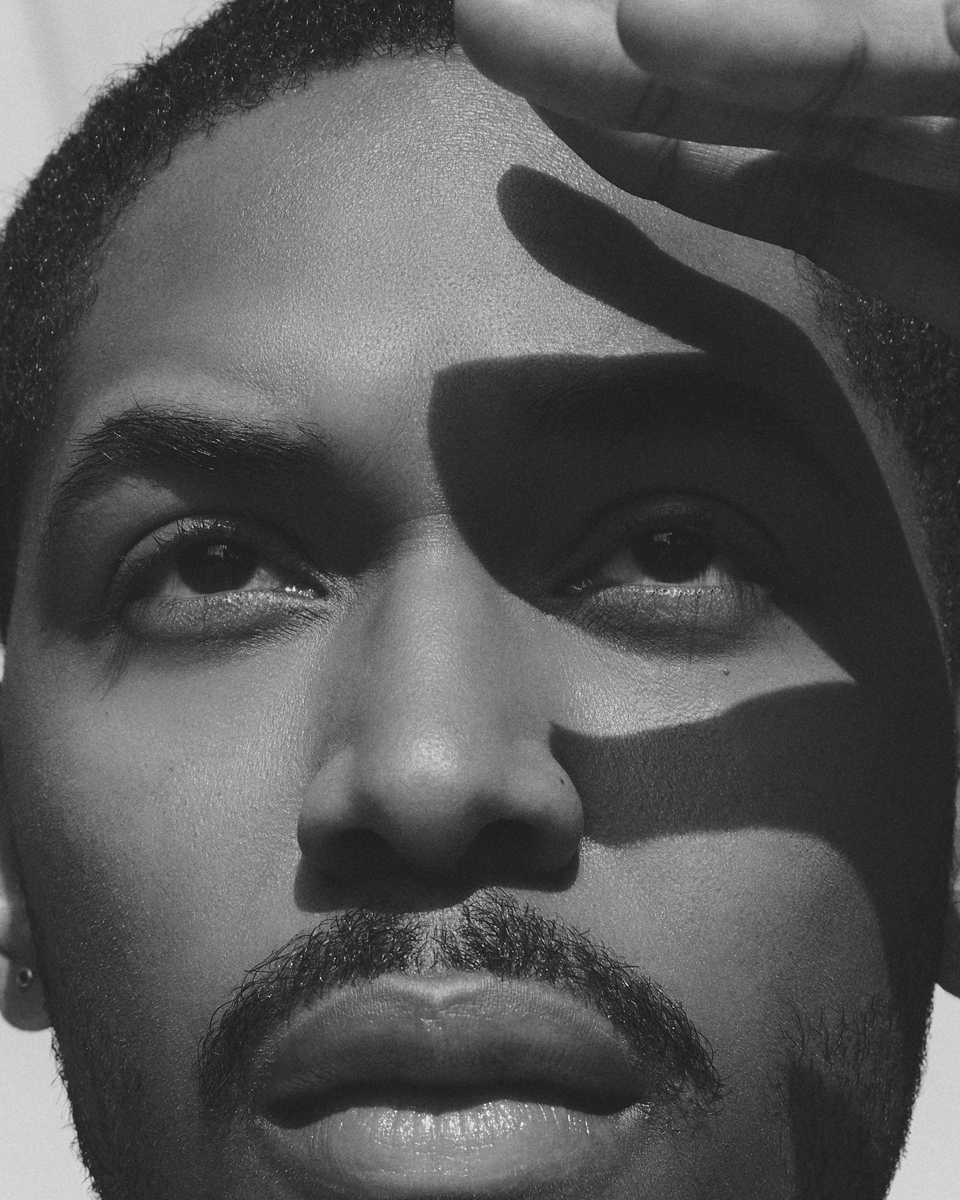It’s on a Friday evening that I speak to the actor Kelvin Harrison Jr over Zoom. He’s calling from a hotel room in Croatia, though has no plans for a big night after our call. Filming on one of his upcoming projects commences the following Monday, and he’s been assigned a homework project for the weekend. The movie in question is O’Dessa, a “post-apocalyptic rock opera” directed by Geremy Jasper. Harrison describes his character (love interest to Sadie Sink of Stranger Things fame) as a “mix between Iggy Pop and Prince” set in a “dystopian Alice in Wonderland-slash-Wizard of Oz-type world.” With Murray Bartlett (a.k.a. the chaotic host of The White Lotus’s first season) also amongst the cast, it sounds like it’s going to be a ride of a movie.
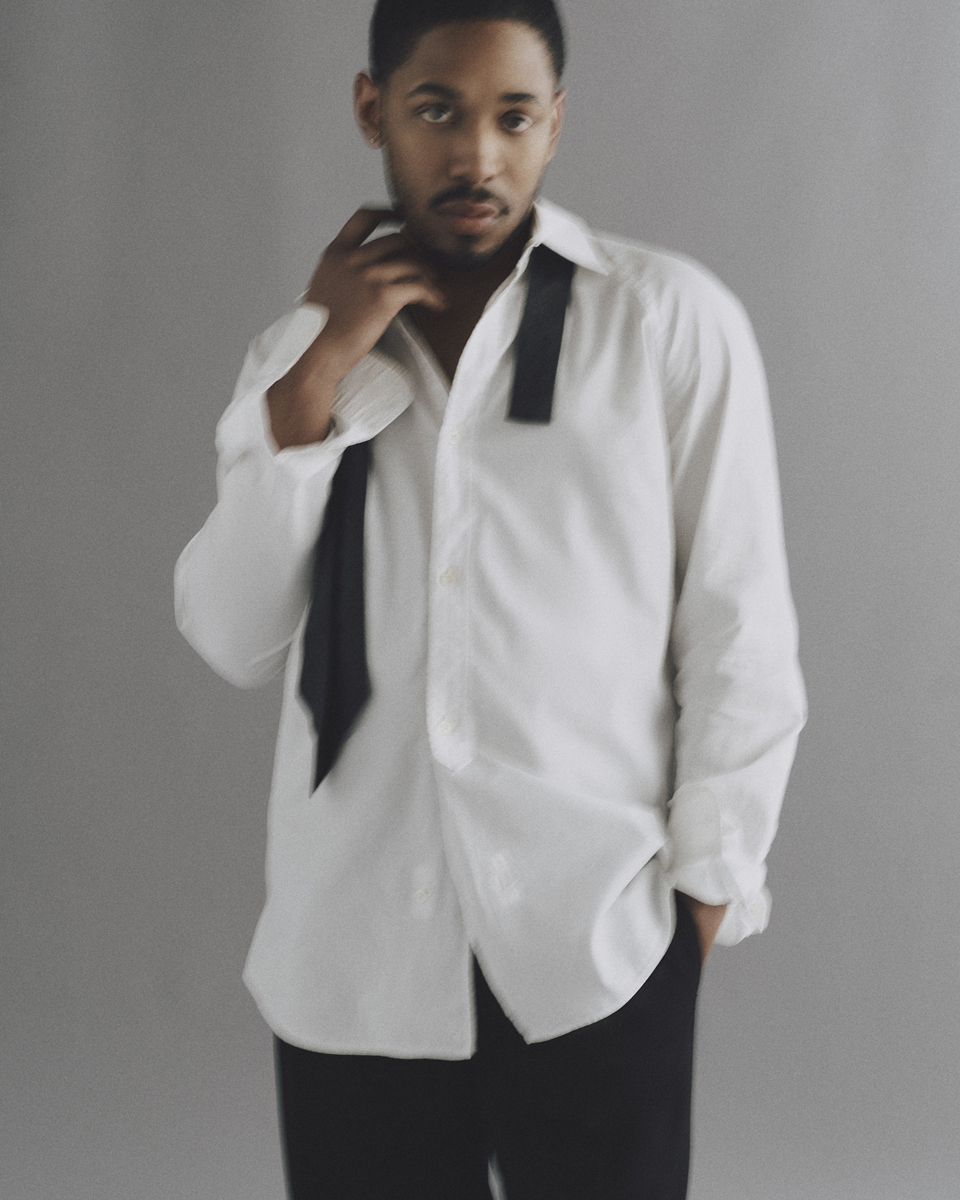
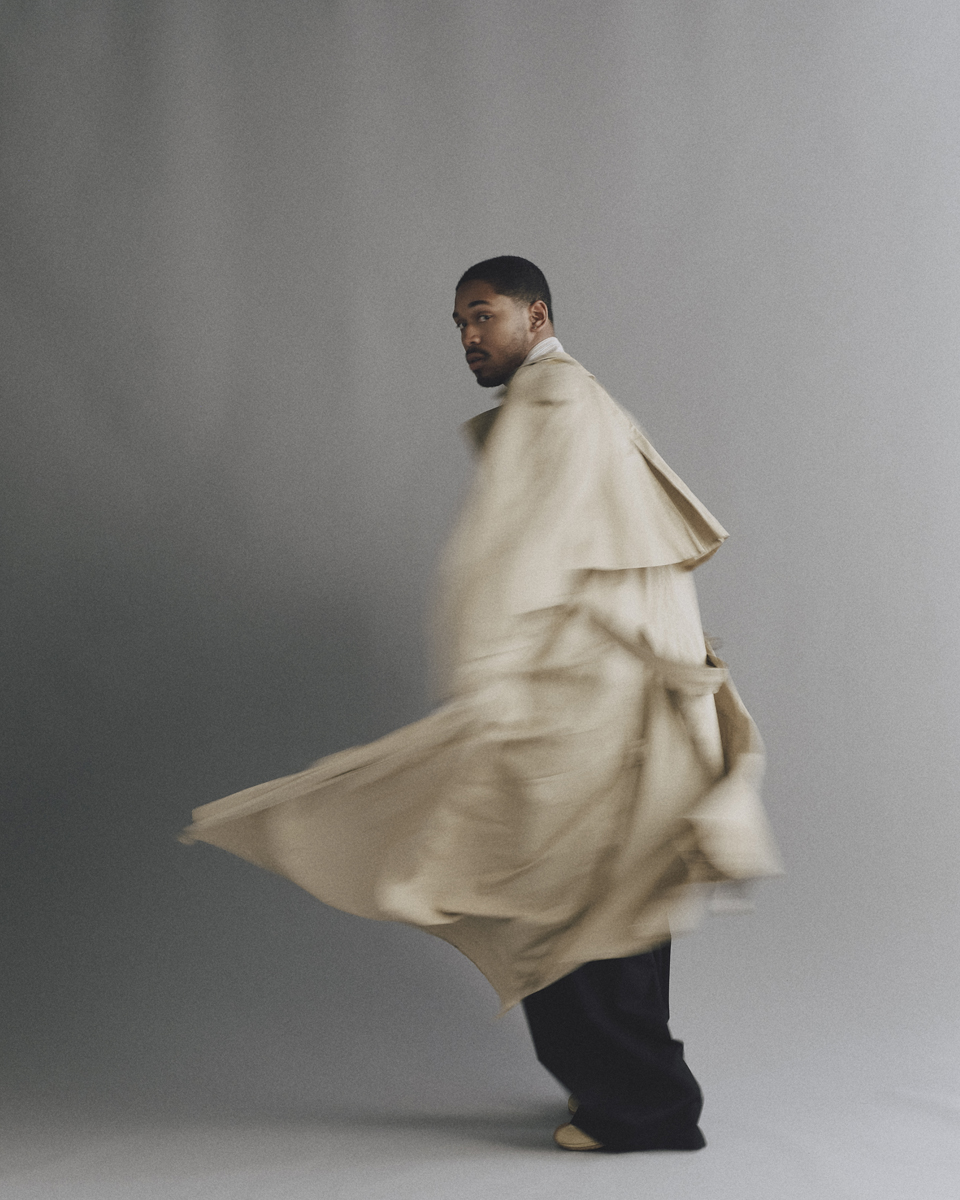
Playing Martin Luther King and Jean-Michel Basquiat will require Harrison to deal with a fuller story of each of their lives. The actor will be playing King from his early 20s until his death in 1968 at the age of 39. “That’s a very different trajectory. I’m 28 now, and I’m still young – I’m learning, growing, evolving. There’s lots of information to take in at that point to figure out how to place the role in order to serve the story.” Then there’s Basquiat, who passed away at the age of 27 in 1988. “I’m at the age right after Jean-Michel passed,” Harrison notes. For that reason, then, he can understand something of the artist’s journey, which will be an integral part of Samo Lives.
For the role, Harrison will reunite with the director Julius Onah, whom he worked with on Luce. Onah has described the film as telling the artist’s story in its full depth and richness, to show the “full spectrum of Basquiat’s incredible life as a Black artist and a child of the immigrant African diaspora.” So while Julian Schnabel’s biopic of Basquiat of the same name from 1996 created an impression of Basquiat’s impact on the art world, Samo Lives will attempt to grapple with Jean-Michel as a person. Though the film won’t be shot until next year, Harrison says that he and Onah have spent a lot of time meeting people who knew Basquiat to get to know who he was in the fullest sense.
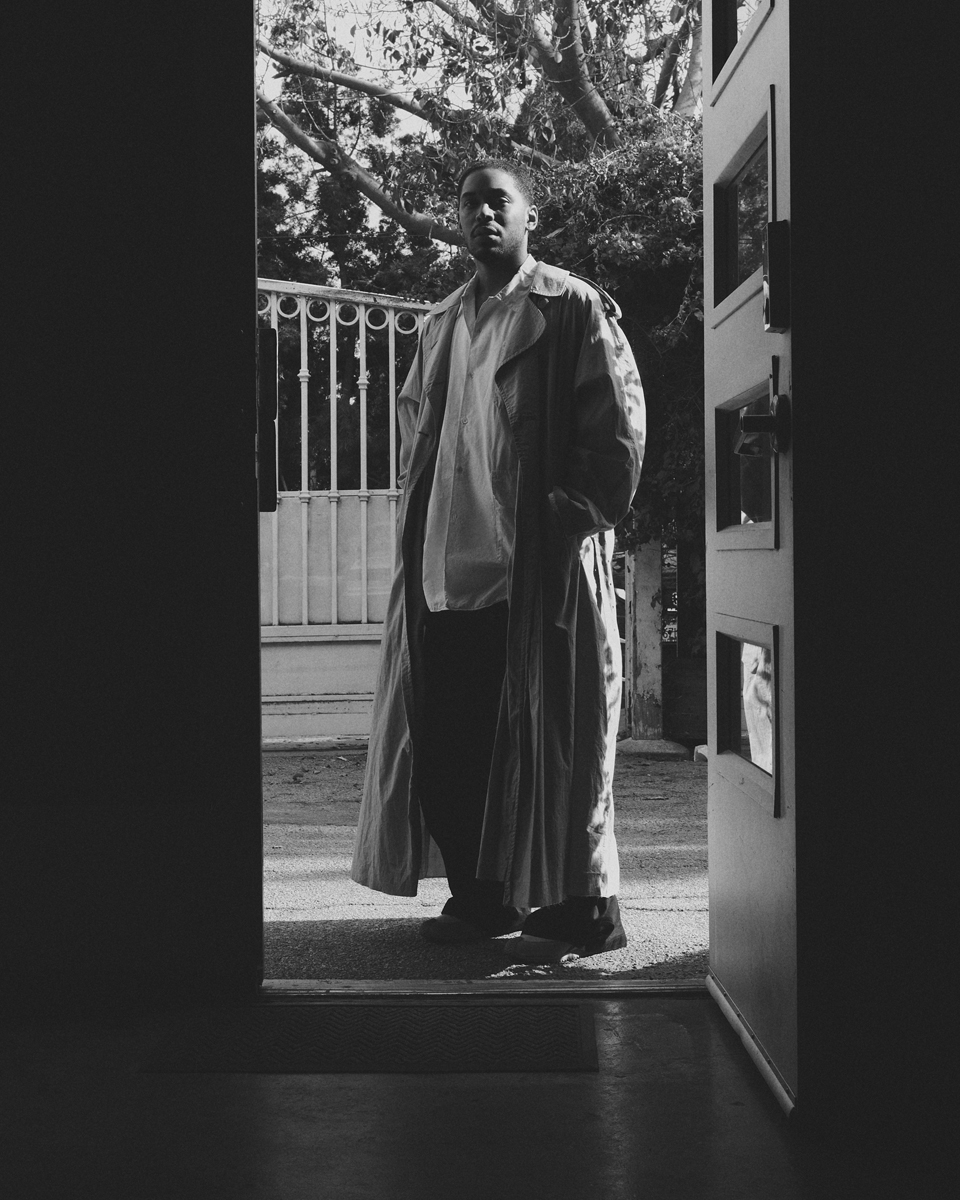
“Basquiat is still so beloved by so many,” Harrison acknowledges, “there’s a different type of responsibility [that comes with the role].” This is especially the case considering that the film comes at a time when Basquiat’s image has been transformed into a commercially lucrative business, with countless collaborations licensed by the late-artist’s estate (from t-shirts, to phone cases and limited edition make-up collections). Harrison notes that, for both himself and Onah, Samo Lives comes from a place of respect and admiration for Basquiat, rather than out of an idolisation of the image of the artist. When it comes to Onah’s casting of Harrison in this role, the director explained what makes the actor the right person for the job – writing in a press release that his “ability to locate and channel the spirit of whoever he inhabits is transcendent. The sensitivity and soulfulness Kelvin will bring is the reason why I know the story I’m seeking to tell will truly honor Jean-Michel’s legacy.”
In terms of working with Onah again, Harrison says, there’s a “slickness and cohesiveness that [you] don’t get to experience often when you get to come back and work with a filmmaker. There’s a different intimacy between a director and an actor.” Harrison adds that he was still young as an actor when he starred in Onah’s Luce. He recalls feeling intimidated by his co-stars, Octavia Spencer, Naomi Watts and Tim Roth – all of whom his on-screen chemistry makes for an electrifying, tense and gripping film.
In Luce, Harrison plays a high school overachiever of the same name. His adoptive parents (Watts and Roth) have brought him up with a nurturing environment far away from his early years spent as a child soldier in Eretria. But when his teacher (Spencer) discovers an alarming essay written by the student, and as allegations of sexual assault and the threat of pending violence begin to loom, who the “real” Luce is begins to cause fractures in the polished surfaces of this all-American existence.
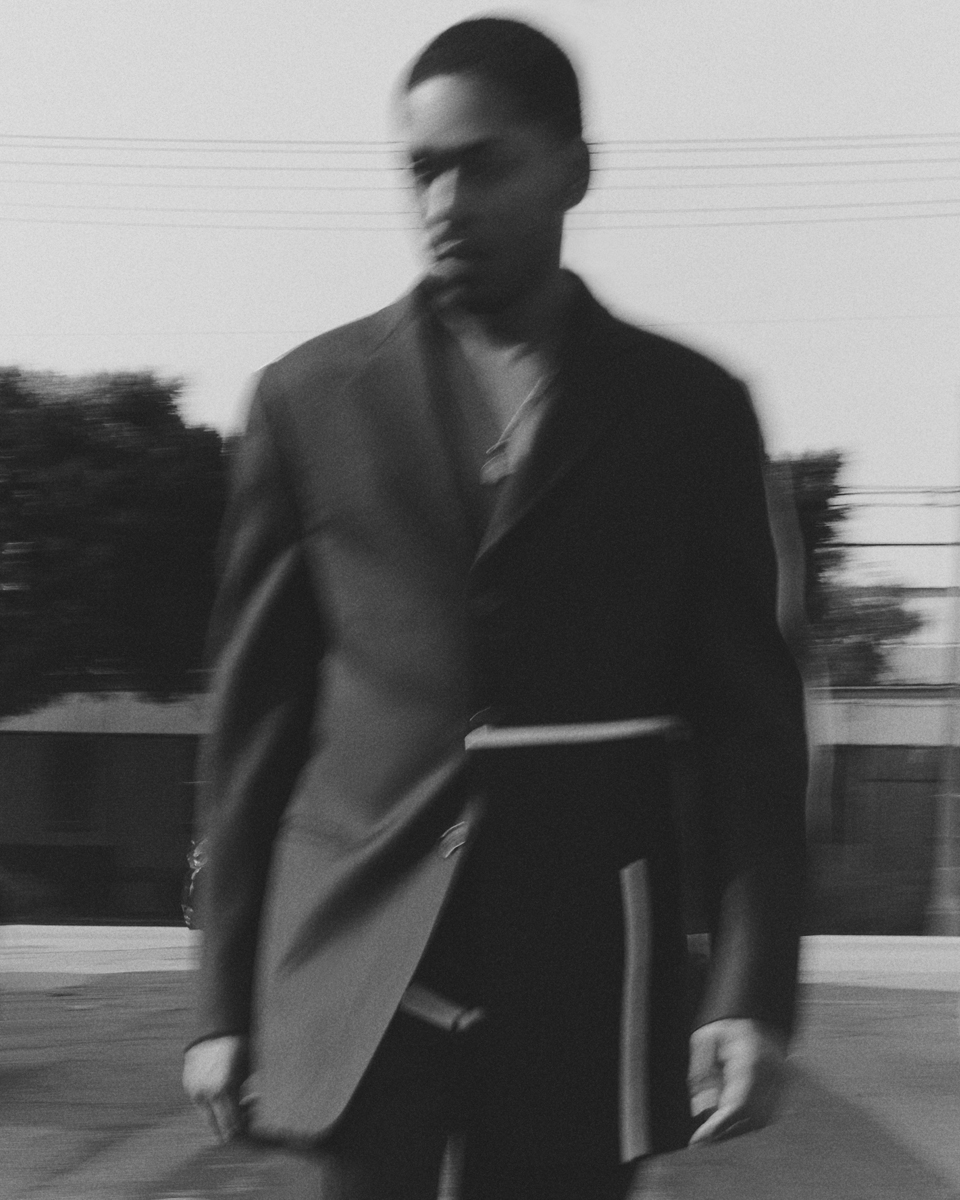
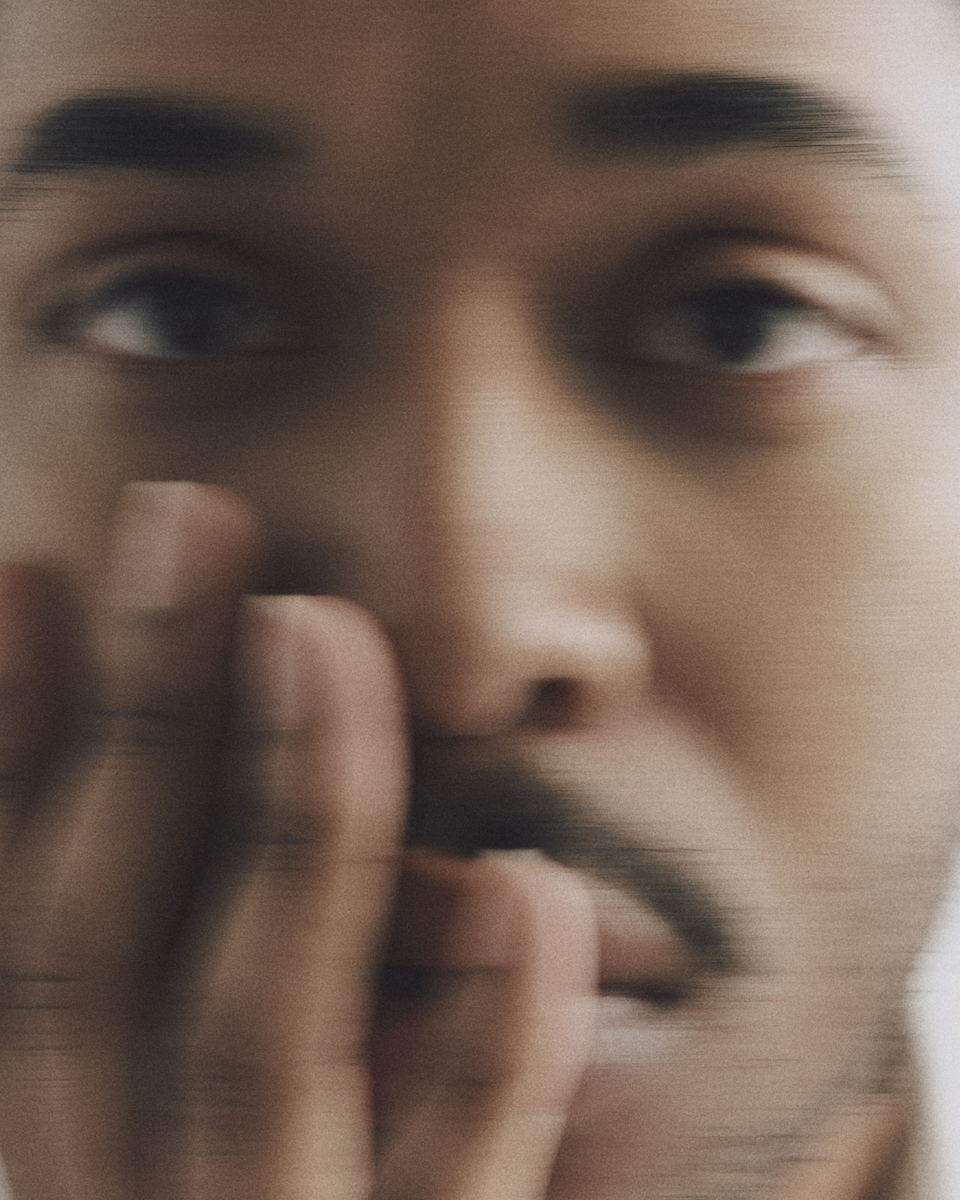
Playing Luce, Harrison is at once charming and unnerving. As a thriller, Luce is incredibly tense to watch, as well as being a film that seeks to shine a light on the racial prejudices and preconceived judgments that hang over being young and black in America. These are themes that are also explored in Monster (directed by Anthony Mandler), in which Harrison plays Steve, a hard-working film student who ends up on trial for felony murder after getting caught up with A$AP Rocky’s character in the film. The film’s title stems from the idea that, rather than a well-rounded young man, Steve is reduced to what he’s seen as by others.
In a similar way, in Waves (directed by Trey Edward Shults, whom Harrison previously worked with on 2017’s horror, It Comes At Night), we see how quickly one person’s actions can have a profound effect on a community’s sense of self. Harrison plays Tyler, a high school senior on the wrestling team, whose life spirals out of control following a series of unconnected events that he struggles to deal with. Waves grapples with trauma and guilt, as emotions that have the capacity to crush and overwhelm – particularly as the film’s second half deals with the aftermath of Tyler’s actions.
Steve, Tyler and Luce are all characters who are burdened with an expectation of promise that is projected onto them, the effects of which they have to grapple with as young black men in a society loaded with preconceived prejudices. There’s a pressure to succeed that requires jumping through a certain set of hoops; conforming to expected behaviours, but not confirming expected stereotypes. Given the similarities between these three roles (which also seem to echo elements of Bologne’s life, too), I wonder if they were deliberate choices for Harrison, or whether these films are a reflection of the kinds of stories getting told at the moment?
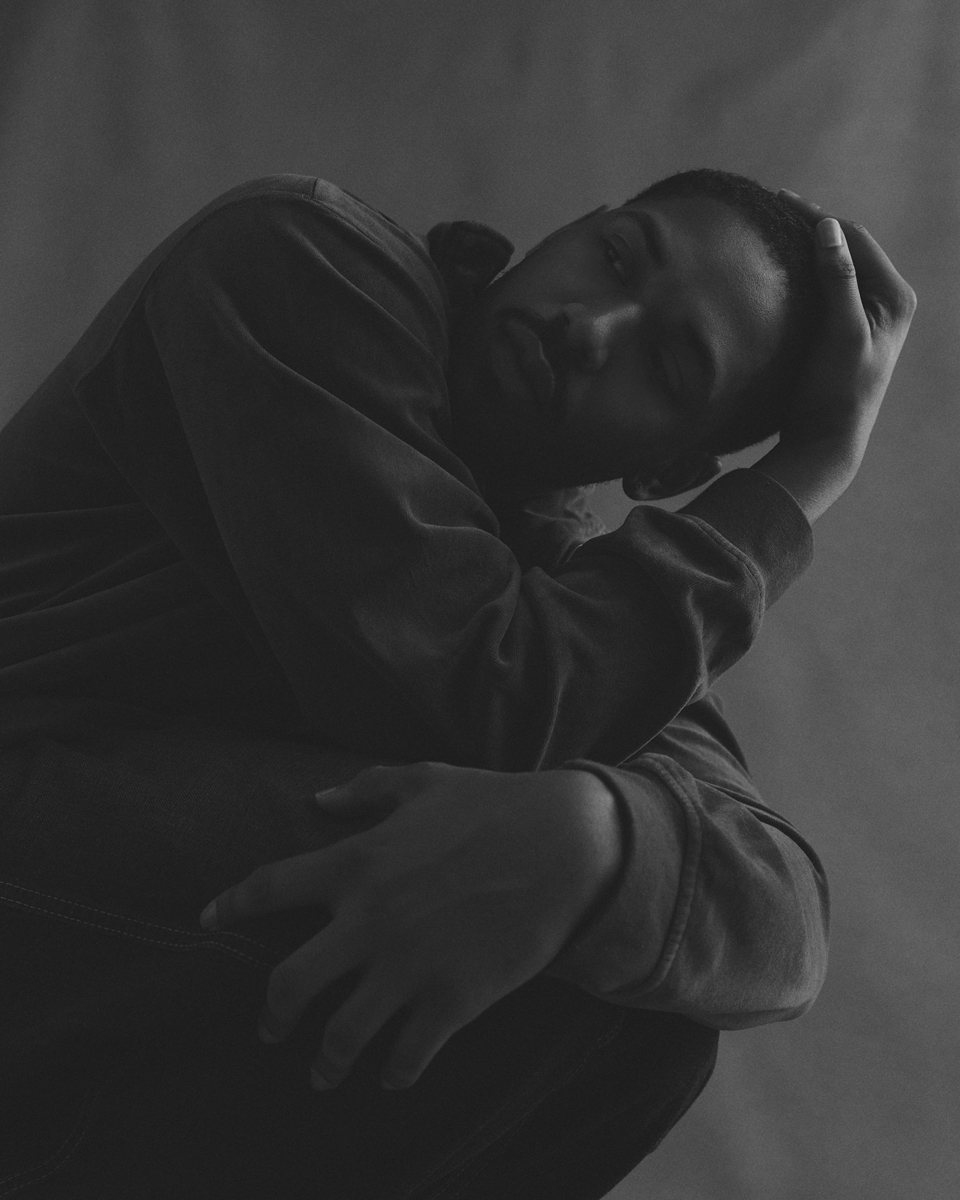
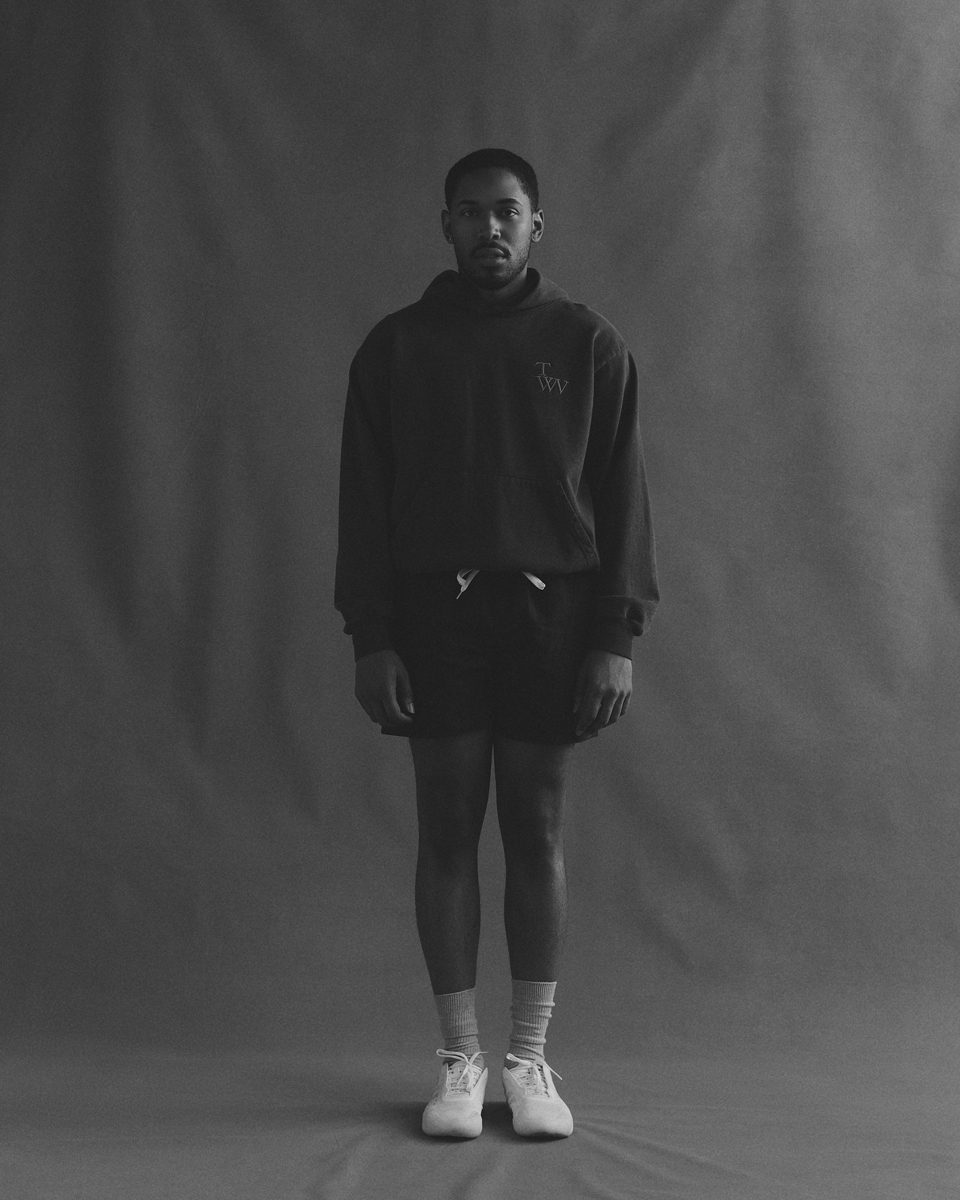
“Here’s the thing, I’m still a product of the moment,” Harrison says. “I grew up in the moment where we were re-exploring identity and race in America [through] the content and the politics I’ve consumed and the questions that are being asked.” As such, Harrison says, the stories being told now are a reflection of that moment. He was in high school when Barack Obama was elected president – and recalls the gravity of having “a black man as the president of the United States of America, the country that had slavery for the longest period of time.”
Moments like this then require questions to be asked. There are the personal, introspective questions: “What is my worth and what is my place in this world?” And the wider questions that attempt to address what’s going on on a societal level: “How are we dealing with race now? Are we post-racial? Or, is it more subversive and subtle? Is it more overt at times? Where are we as a people?” In turn, Harrison adds, to answer those questions, films need to be greenlighted that seek to grapple with the issues at stake. As an actor, he says, it’s his responsibility to know how to bring truth to those discussions.
As a child, Harrison was brought up in a musical family – his parents were both musicians while his father was also taught classical music. Growing up on a diet of jazz, gospel and classical music, Harrison says, his parents taught him to think deeply about what he was listening to – to consider the process and what was being communicated through lyrics, compositions and sounds. In turn, the actor says, he learned the importance of communication and awareness for others. “I think to be self-aware and to have an awareness of everything that’s going on around you, that [helps] a young person to have empathy.” That, Harrison adds, is “such an invaluable quality to have in a person. And vulnerability. When you’re aware, you also start to see other people’s vulnerabilities and it reminds you that it’s okay to be vulnerable.” These are certainly characteristics that radiate through the roles Harrison has played so far, and reflect the soulfulness which Onah has attributed to the actor.
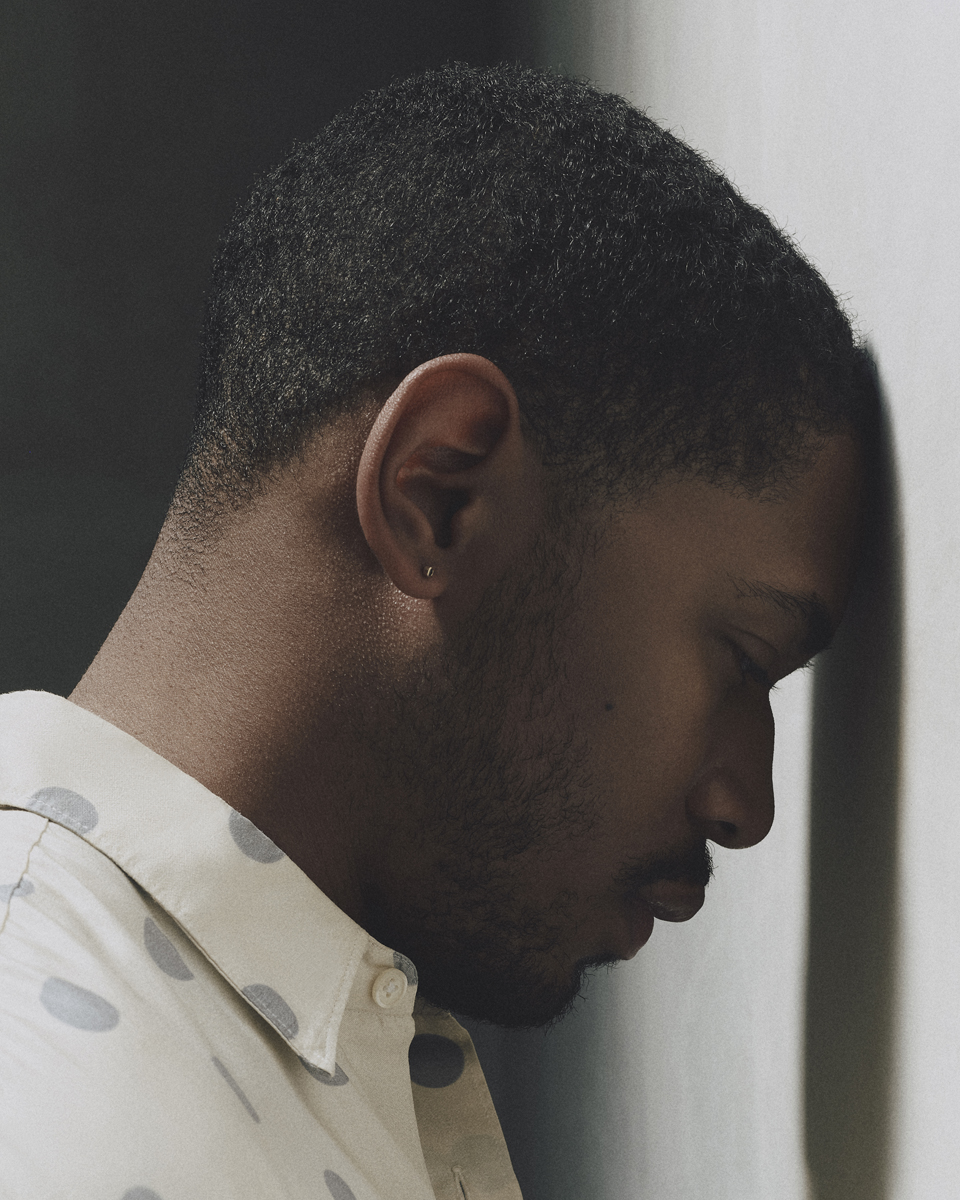
I have one final question for Harrison before he heads off to spend his evening preparing for O’Dessa. He’ll be voicing Scar in next year’s Mufasa: The Lion King, a live-action prequel to the 1990’s Disney classic. What’s it like voicing someone – sorry, a lion, I clarify – who shaped a generation’s early exposure to the magic of film? “I think it’s a weird challenge because you have your memory of it. You’re not getting to build it from the ground up.” So many people have a connection to those characters, even if they started out as anthropomorphic illustrated characters. “To come back and create a backstory for this person – lion! – is a scary task.
The importance of empathy and connection recur in this role. As Harrison says, “I’m still playing someone’s family member. Lions have the same qualities of protection [as humans] for those you love; protection of your cubs, protection of your tribe. We’re animals as well as human beings. We’re predators at times too. We’re emotional beings, we can be hurt, we all die. Those themes don’t change, and so when you’re playing a talking lion, these animals still feel things.”
Voicing Scar is also an experience that Harrison says has been fun, and one in which he’s been able to embody a different character. “If you went into the studio, you’d be like, “Is he okay?” Because I’m next to the mic purring and roaring and laughing and scratching and itching. My body’s still having a reaction because I’m trying to think about what this lion is going through. The only difference is that I can’t do the physical stuff all the time, like running. That’s where the technique of acting comes in, I guess. But it feels real.”
Earlier in our call, when I ask Harrison what it’s like to go from the “indie kid” to appearing in bigger budget productions, he says that there are a different set of expectations. “When you’re making smaller movies, no one’s expecting anyone to see them! We’re just trying to tell the truth.” With bigger films, meanwhile, the emphasis on entertainment (especially in an age of platforms and networks and social media apps all competing for the audience’s attention.
Harrison mentions this notion of charm, that actors are expected to be charming. “I can’t perform charm,” he says. “What I can be is genuinely curious in those spaces and enjoy the process as I’m going through that character’s journey”. Charm is not an easily quantifiable characteristic. But Harrison has all the qualities of an empathetic, thoughtful individual – and one who’s on-screen charisma is undisputable.
